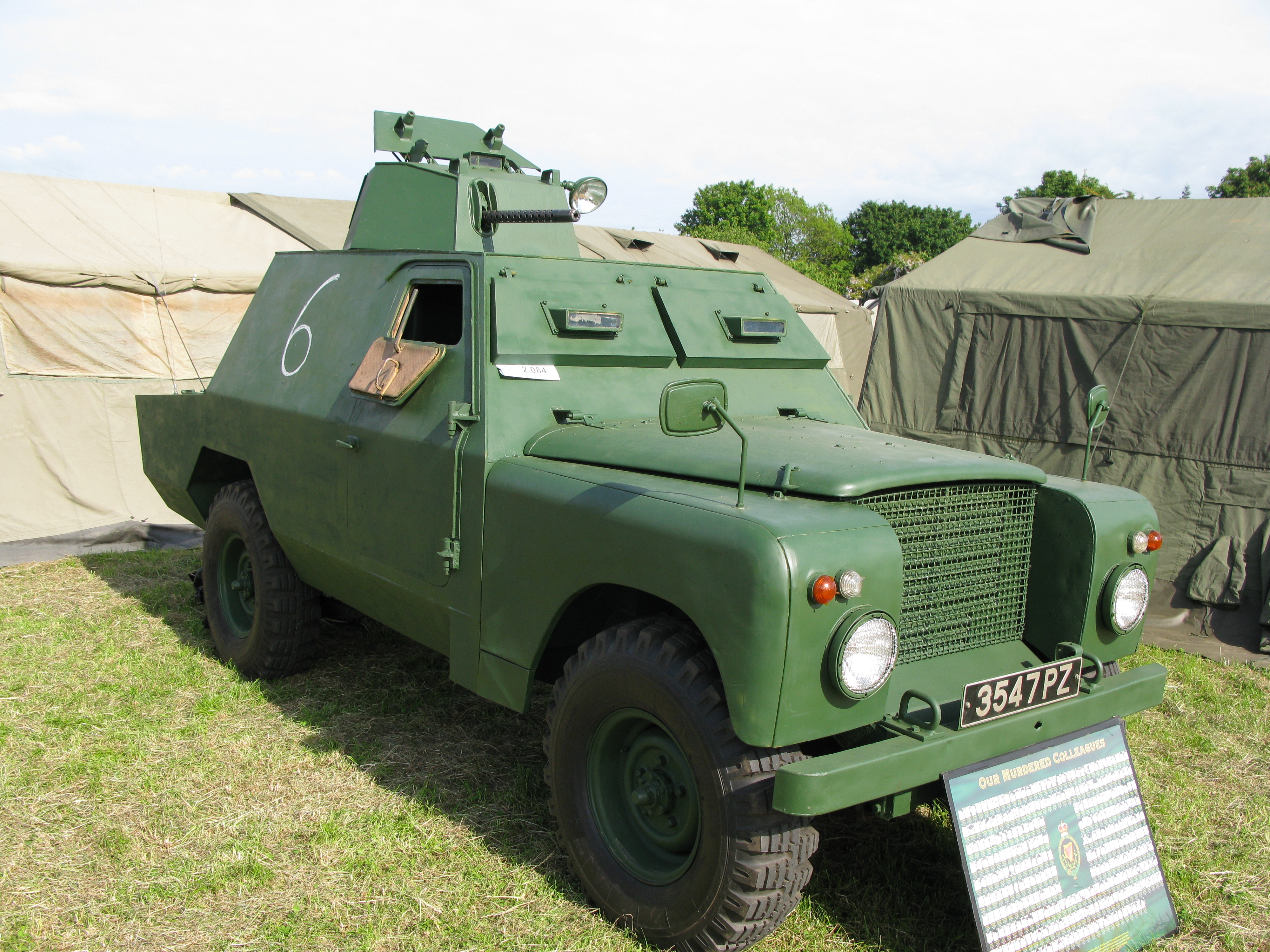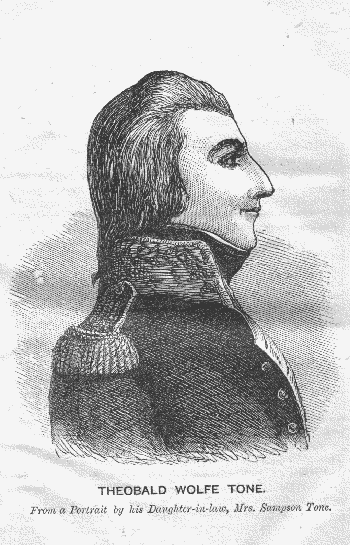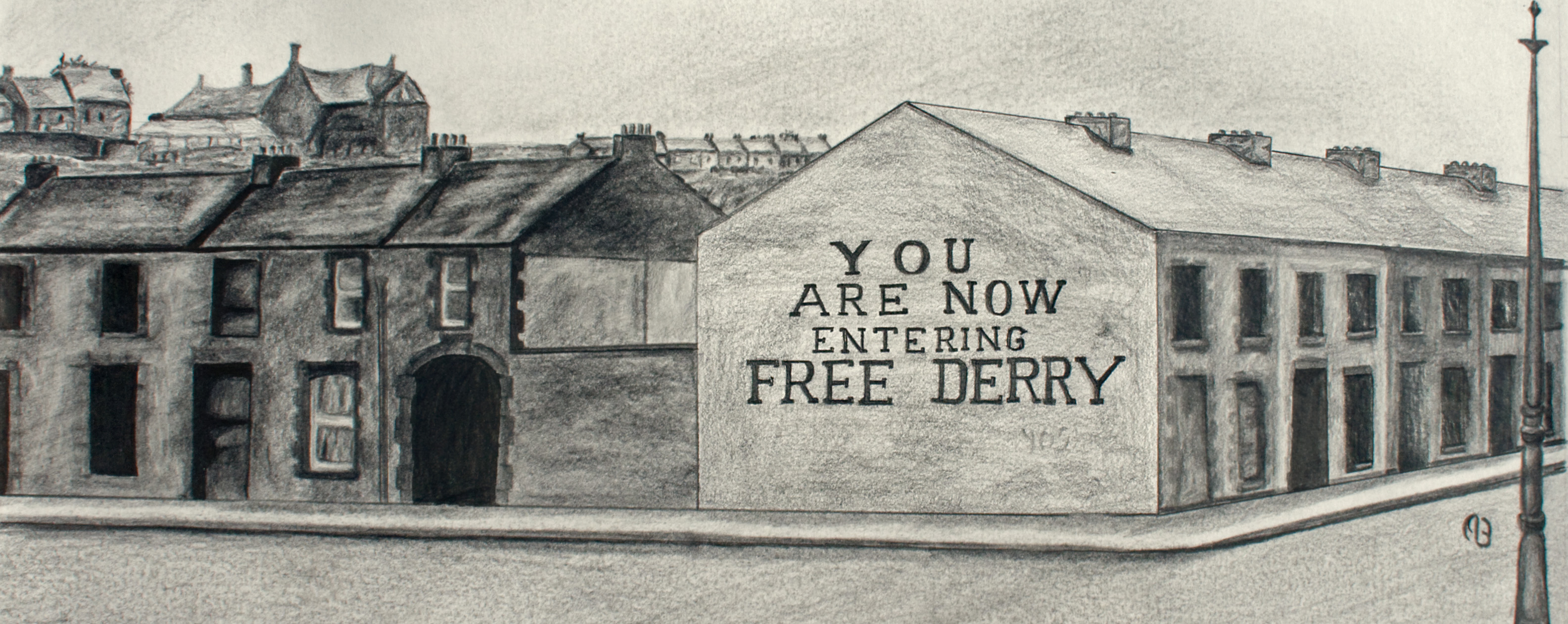|
1969 Northern Ireland Riots
During 12–16 August 1969, there was an outbreak of political and sectarian violence throughout Northern Ireland, which is often seen as the beginning of the thirty-year conflict known as the Troubles. There had been sporadic violence throughout the year arising out of the Northern Ireland civil rights campaign, which demanded an end to discrimination against Catholics and Irish nationalists. Civil rights marches had been attacked by Protestant loyalists, and protesters often clashed with the Royal Ulster Constabulary (RUC), the overwhelmingly Protestant police force. On 12 August, the Battle of the Bogside erupted in Derry: three days of fierce clashes between the RUC and thousands of Catholic/nationalist residents of Derry's Bogside district. The besieged residents built barricades and set up first aid posts and workshops for making petrol bombs. Police fired CS gas at rioters for the first time in the history of the UK. In support of the Bogsiders, on 13 August Catholic ... [...More Info...] [...Related Items...] OR: [Wikipedia] [Google] [Baidu] |
The Troubles
The Troubles () were an ethno-nationalist conflict in Northern Ireland that lasted for about 30 years from the late 1960s to 1998. Also known internationally as the Northern Ireland conflict, it began in the late 1960s and is usually deemed to have ended with the Good Friday Agreement of 1998. Although the Troubles mostly took place in Northern Ireland, at times violence spilled over into parts of the Republic of Ireland, England, and mainland Europe. Sometimes described as an Asymmetric warfare, asymmetric or Irregular warfare, irregular war or a low-intensity conflict, the Troubles were a political and nationalistic struggle fueled by historical events, with a strong Ethnic conflict, ethnic and sectarian dimension, fought over the Partition of Ireland, status of Northern Ireland. Unionism in Ireland, Unionists and Ulster loyalism, loyalists, who for Plantation of Ulster, historical reasons were mostly Ulster Protestants, wanted Northern Ireland to remain within the United Ki ... [...More Info...] [...Related Items...] OR: [Wikipedia] [Google] [Baidu] |
Northern Ireland
Northern Ireland ( ; ) is a Countries of the United Kingdom, part of the United Kingdom in the north-east of the island of Ireland. It has been #Descriptions, variously described as a country, province or region. Northern Ireland shares Republic of Ireland–United Kingdom border, an open border to the south and west with the Republic of Ireland. At the 2021 United Kingdom census, 2021 census, its population was 1,903,175, making up around 3% of the Demographics of the United Kingdom#Population, UK's population and 27% of the population on the island of Ireland#Demographics, Ireland. The Northern Ireland Assembly, established by the Northern Ireland Act 1998, holds responsibility for a range of Devolution, devolved policy matters, while other areas are reserved for the Government of the United Kingdom, UK Government. The government of Northern Ireland cooperates with the government of Ireland in several areas under the terms of the Good Friday Agreement. The Republic of Ireland ... [...More Info...] [...Related Items...] OR: [Wikipedia] [Google] [Baidu] |
British Army
The British Army is the principal Army, land warfare force of the United Kingdom. the British Army comprises 73,847 regular full-time personnel, 4,127 Brigade of Gurkhas, Gurkhas, 25,742 Army Reserve (United Kingdom), volunteer reserve personnel and 4,697 "other personnel", for a total of 108,413. The British Army traces back to 1707 and the Acts of Union 1707, formation of the united Kingdom of Great Britain which joined the Kingdoms of Kingdom of England, England and Kingdom of Scotland, Scotland into a Political union, single state and, with that, united the English Army and the Scots Army as the British Army. The Parliament of England, English Bill of Rights 1689 and Convention of the Estates, Scottish Claim of Right Act 1689 require parliamentary consent for the Crown to maintain a peacetime standing army. Members of the British Army swear allegiance to the Charles III, monarch as their commander-in-chief. The army is administered by the Ministry of Defence (United Kingd ... [...More Info...] [...Related Items...] OR: [Wikipedia] [Google] [Baidu] |
Paramilitary
A paramilitary is a military that is not a part of a country's official or legitimate armed forces. The Oxford English Dictionary traces the use of the term "paramilitary" as far back as 1934. Overview Though a paramilitary is, by definition, not a military, it is usually equivalent to a light infantry or special forces in terms of strength, firepower, and organizational structure. Paramilitaries use combat-capable kit/equipment (such as Internal security vehicle, internal security/SWAT vehicles), or even actual military equipment (such as Long gun, long guns and Armoured personnel carrier, armored personnel carriers; usually military surplus resources), skills (such as battlefield medicine and bomb disposal), and tactics (such as urban warfare and close-quarters combat) that are compatible with their purpose, often combining them with skills from other relevant fields such as law enforcement, coast guard, or search and rescue. A paramilitary may fall under the command of a ... [...More Info...] [...Related Items...] OR: [Wikipedia] [Google] [Baidu] |
Irish Republicanism
Irish republicanism () is the political movement for an Irish Republic, Irish republic, void of any British rule in Ireland, British rule. Throughout its centuries of existence, it has encompassed various tactics and identities, simultaneously elective and militant and has been both widely supported and iconoclastic. The Modern era, modern emergence of nationalism, democracy, and Classical radicalism, radicalism provided a basis for the movement, with groups forming across the island in hopes of independence. Parliamentary defeats provoked uprisings and armed campaigns, quashed by British forces. The Easter Rising, an attempted coup that took place in the midst of the First World War, provided popular support for the movement. An Irish republic was declared in 1916 and officialized following the Irish War of Independence. The Irish Civil War, beginning in 1922 and spurred by the Partition of Ireland, partition of the island, then occurred. Republican action, including armed cam ... [...More Info...] [...Related Items...] OR: [Wikipedia] [Google] [Baidu] |
CS Gas
The compound 2-chlorobenzalmalononitrile (also called ''o''-chlorobenzylidene malononitrile; chemical formula: C10H5ClN2), a cyanocarbon, is the defining component of the lachrymatory agent commonly referred to as CS gas, a tear gas which is used as a riot control agent, and is banned for use in warfare due to the 1925 Geneva Protocol. Exposure causes a burning sensation and tearing of the eyes to the extent that the subject cannot keep their eyes open, and a burning irritation of the mucous membranes of the nose, mouth and throat, resulting in profuse coughing, nasal mucus discharge, disorientation, and difficulty breathing, partially incapacitating the subject. CS gas is an aerosol of a volatile solvent (a substance that dissolves other active substances and that easily evaporates) and 2-chlorobenzalmalononitrile, which is a solid compound at room temperature. CS gas is generally accepted as being non-lethal. History CS gas was first synthesized by two Americans, B ... [...More Info...] [...Related Items...] OR: [Wikipedia] [Google] [Baidu] |
Petrol Bomb
A Molotov cocktail (among several other names – ''see '') is a hand-thrown incendiary weapon consisting of a frangible container filled with flammable substances and equipped with a fuse (typically a glass bottle filled with flammable liquids sealed with a cloth wick). In use, the fuse attached to the container is lit and the weapon is thrown, shattering on impact. This ignites the flammable substances contained in the bottle and spreads flames as the fuel burns. Due to their relative ease of production, Molotov cocktails are typically improvised weapons. Their improvised usage spans criminals, gangsters, rioters, football hooligans, urban guerrillas, terrorists, irregular soldiers, freedom fighters, and even regular soldiers; usage in the latter case is often due to a shortage of equivalent military-issued munitions. Despite the weapon's improvised nature and uncertain quality, many modern militaries exercise the use of Molotov cocktails. However, Molotov cocktails are ... [...More Info...] [...Related Items...] OR: [Wikipedia] [Google] [Baidu] |
Barricade
Barricade (from the French ''barrique'' - 'barrel') is any object or structure that creates a barrier or obstacle to control, block passage or force the flow of traffic in the desired direction. Adopted as a military term, a barricade denotes any improvised field fortification, such as on city streets during urban warfare. Barricades also include temporary traffic barricades designed with the goal of dissuading passage into a protected or risk, hazardous area or large slabs of cement whose goal is to prevent forcible passage by a vehicle. Stripes on barricades and panel devices slope downward in the direction traffic must travel. There are also pedestrian barricades - sometimes called bike rack barricades for their resemblance to a now obsolete form of bicycle stand, or police barriers. They originated in France approximately 50 years ago and are now used around the world. They were first used in the U.S. 40 years ago by Friedrichs Mfg for New Orleans's Mardi Gras parades. ... [...More Info...] [...Related Items...] OR: [Wikipedia] [Google] [Baidu] |
Battle Of The Bogside
The Battle of the Bogside was a large three-day riot that took place from 12 to 14 August 1969 in Derry, Northern Ireland. Thousands of Catholic/Irish nationalist residents of the Bogside district, organised under the Derry Citizens' Defence Association, clashed with the Royal Ulster Constabulary (RUC) and loyalists, and sealed off the neighbourhood to authorities. It sparked widespread violence elsewhere in Northern Ireland, led to the deployment of British troops, and is often seen as the beginning of the thirty-year conflict known as the Troubles. Violence broke out as the Protestant loyalist Apprentice Boys marched past the Catholic Bogside. The RUC drove back the Catholic crowd and pushed into the Bogside, followed by loyalists who attacked Catholic homes.Stetler, Russell. ''The Battle of Bogside: The Politics of Violence in Northern Ireland''Chapter 3: August. Reproduced by Conflict Archive on the Internet (CAIN). Thousands of Bogside residents beat back the RUC wit ... [...More Info...] [...Related Items...] OR: [Wikipedia] [Google] [Baidu] |
Royal Ulster Constabulary
The Royal Ulster Constabulary (RUC) was the police force in Northern Ireland from 1922 to 2001. It was founded on 1 June 1922 as a successor to the Royal Irish Constabulary (RIC) Richard Doherty, ''The Thin Green Line – The History of the Royal Ulster Constabulary GC'', pp. 5, 17, 27, 93, 134, 271; Pen & Sword Books; following the partition of Ireland. At its peak the force had around 8,500 officers, with a further 4,500 who were members of the RUC Reserve. The RUC policed Northern Ireland from the aftermath of the Irish War of Independence until after the turn of the 21st century and played a major role in the Troubles between the 1960s and the 1990s. Due to the threat from the Provisional Irish Republican Army (IRA), who saw the RUC as enforcing British rule, the force was heavily armed and militarised. Officers routinely carried submachine guns and assault rifles, travelled in armoured vehicles, and were based in heavily fortified police stations.Weitzer, Ronald. ... [...More Info...] [...Related Items...] OR: [Wikipedia] [Google] [Baidu] |
Ulster Loyalism
Ulster loyalism is a strand of Unionism in Ireland, Ulster unionism associated with working class Ulster Protestants in Northern Ireland. Like other unionists, loyalists support the continued existence of Northern Ireland (and formerly all of Ireland) within the United Kingdom, and oppose a united Ireland independent of the UK. Unlike other strands of unionism, loyalism has been described as an ethnic nationalism of Ulster Protestants and "a variation of British nationalism". Loyalists are often said to have a conditional loyalty to the British state so long as it defends their interests.Smithey, Lee. ''Unionists, Loyalists, and Conflict Transformation in Northern Ireland''. Oxford University Press, 2011. pp. 56–58 They see themselves as loyal primarily to the Protestant Monarchy of the United Kingdom, British monarchy rather than to British governments and institutions, while Garret FitzGerald argued they are loyal to 'Ulster' over 'the Union'. A small minority of loyalists ha ... [...More Info...] [...Related Items...] OR: [Wikipedia] [Google] [Baidu] |
Ulster Protestant
Ulster Protestants are an ethnoreligious group in the Irish province of Ulster, where they make up about 43.5% of the population. Most Ulster Protestants are descendants of settlers who arrived from Britain in the early 17th century Ulster Plantation. This was the settlement of the Gaelic, Catholic province of Ulster by Scots and English speaking Protestants, mostly from the Scottish Lowlands and Northern England. Many more Scottish Protestant migrants arrived in Ulster in the late 17th century. Those who came from Scotland were mostly Presbyterians, while those from England were mostly Anglicans (see Church of Ireland). There is also a small Methodist community and the Methodist Church in Ireland dates to John Wesley's visit to Ulster in 1752. Although most Ulster Protestants descend from Lowland Scottish people (some of whose descendants consider themselves Ulster Scots), many descend from English, and to a lesser extent, from Irish, Welsh and Huguenots. Since the ... [...More Info...] [...Related Items...] OR: [Wikipedia] [Google] [Baidu] |








